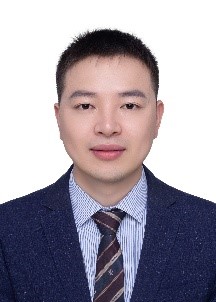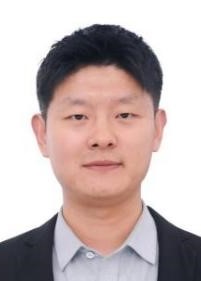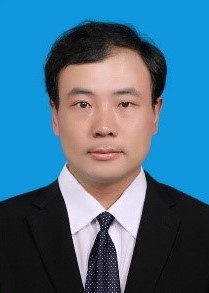Special Session 14
Intelligent Control and Fault Diagnosis of Complex Systems 复杂系统的智能控制与故障诊断
Introduction:
With the rapid development of Industry 4.0 and smart manufacturing, intelligent control and fault diagnosis technologies have become increasingly important across various fields. Modern complex systems, such as aerospace, automotive, energy, and manufacturing, face increasingly complex operating environments and rising maintenance costs. Traditional control and fault detection methods often rely on experience and periodic inspections, making it difficult to meet the demands for real-time monitoring and prediction. Therefore, employing advanced intelligent algorithms and data-driven approaches to achieve control and fault diagnosis has become key to enhancing system reliability and reducing maintenance costs.
This special session, titled "Intelligent Control and Fault Diagnosis of Complex Systems", aims to bring together researchers, engineers, and industry experts to explore the latest developments and future directions in the field of intelligent control and fault diagnosis. The session will focus on four core areas, including but not limited to: (1) Intelligent control of complex systems (2) Fault diagnosis techniques based on machine learning and deep learning, (3) Remaining useful life prediction methods and their effectiveness in practical applications, and (4) Case studies of intelligent algorithms applied in complex systems.
随着工业 4.0 和智能制造的快速发展,智能控制与故障诊断技术在各个领域中变得愈发重要。现代复杂系统,如航空航天、汽车、能源以及制造业等,面临着日益复杂的运行环境,且维护成本不断攀升。传统的控制与故障检测方法往往依赖于经验和定期检查,难以满足对实时监测和预测的需求。因此,采用先进的智能算法和数据驱动的方法来实现控制与故障诊断,已成为提高系统可靠性和降低维护成本的关键。
本次名为 “复杂系统的智能控制与故障诊断” 的专题会议,旨在汇聚研究人员、工程师和行业专家,共同探讨智能控制与故障诊断领域的最新进展和未来发展方向。本次会议将聚焦于四个核心领域,包括但不限于:(1)复杂系统的智能控制;(2)基于机器学习和深度学习的故障诊断技术;(3)剩余使用寿命预测方法及其在实际应用中的有效性;(4)智能算法在复杂系统中应用的案例研究。
Organizers:
 |
Chuang Chen, Nanjing Tech University, China Chuang Chen received the Ph.D. degree in control theory and control engineering from Nanjing University of Aeronautics and Astronautics, Nanjing, China, in 2022. From 2021 to 2022, he visited the Space Engineering Design Laboratory as a Joint Ph.D. Student with York University, Toronto, ON, Canada. From 2022 to 2023, he visited as a Visiting Scholar with the State Key Laboratory of Industrial Control Technology, Zhejiang University, Hangzhou, China. He is currently an Associate Professor with the College of Electrical Engineering and Control Science, Nanjing Tech University, Nanjing, and an In-Service Postdoctoral Fellow with Shanghai Jiao Tong University, Shanghai, China. He has published more than 50 academic papers in internationally renowned journals such as IEEE/CAA Journal of Automatica Sinica, IEEE Transactions on Cybernetics, and IEEE Transactions on Industrial Electronics. He has received more than ten awards, including the First Prize for Scientific and Technological Progress from the Chinese Association of Automation, the Second Prize for Scientific and Technological Progress from the China Instrument and Control Society, and the Third Prize in Natural Science from the Chinese Association of Automation, among others. His current research interests include data-driven fault prognosis and health management. |
 |
Chuang Wang, Northeast Petroleum University, China Chuang Wang received the Ph.D. degree in petroleum and natural gas engineering from the Northeast Petroleum University, Daqing, China, in 2023, respectively. From August 2022 to August 2023, he was a Visiting Ph.D. Student with the Department of Computer Science, Brunel University London, Uxbridge, U.K. He is currently a Professor with the Artificial Intelligence Energy Research Institute, Northeast Petroleum University, Daqing, China. He has published more than 20 papers in international journals, such as IEEE Transactions on Neural Networks and Learning Systems, IEEE Transactions on Industrial Informatics, and IEEE Transactions on Systems, Man, and Cybernetics: Systems. He has received the first prize in the outstanding doctoral thesis award of the Chinese Association of Automation in 2024. He is a reserve leader of the Heilongjiang Provincial leading talent echelon of pattern recognition and intelligent systems. His research interests include deep learning, transfer learning, and intelligent fault diagnosis. |
|
Dongdong Yue, Nanjing Tech University, China Dongdong Yue received the Ph.D. Degree in control science and engineering from Southeast University, Nanjing, China, in 2021. He is currently an Associate Professor with the College of Electrical Engineering and Control Science, Nanjing Tech University, Nanjing. Previously, he was a Postdoctoral Researcher with Southeast University, and was awarded the Fellowship of China National Postdoctoral Program for Innovative Talents. He held several academic visit projects to Okayama Prefectural University in Japan, Delft University of Technology in the Netherlands, and Hong Kong University of Science and Technology in China. He has published more than 20 academic papers in internationally renowned journals such as IEEE/CAA Journal of Automatica Sinica, IEEE Transactions on Automatic Control, and IEEE Transactions on Neural Networks and Learning Systems. His research interests include distributed adaptive control and optimization of complex network systems. |
|
Jiantao Shi, Nanjing Tech University, China Jiantao Shi received the Ph.D. degree in control science and engineering from Tsinghua University, Beijing, China, in 2016. He is currently a full Professor and a Doctoral Advisor in College of Electrical Engineering and Control Science at Nanjing Tech University, Nanjing, China. He also serves as the head of the National Defense Science and Technology Innovation Team, the deputy director of the Jiangsu Provincial Key Laboratory, and the chief scientist of the Artificial Intelligence Research Institute at Nanjing Tech University. His primary research areas include complex system fault diagnosis and intelligent operation and maintenance. He has been selected as a top young talent in the field of national defense science and technology, a distinguished young scholar of Jiangsu Province, a leader of the "333 Project" for young and middle-aged academic leaders in Jiangsu Province, and a talent under Jiangsu's "Dual Innovation Plan." He has undertaken 12 national and provincial-level research projects, published over 100 academic papers, and led or participated in winning 10 national, provincial, and national academic awards. He is an IEEE Senior Member, a senior member of the Chinese Association of Automation, a committee member of the Trusted Control Systems Professional Committee of the Chinese Association of Automation, and a member of the Fault Diagnosis and Safety Professional Committee for technical processes. |
Submission Guideline:
Please submit your manuscript via Online Submission System: https://easychair.org/conferences/?conf=rcae2025
Please choose Special Session: Intelligent Control and Fault Diagnosis of Complex Systems
- Home
- Call for Papers
- Call for Special Session
- Special Session 1
- Special Session 2
- Special Session 3
- Special Session 4
- Special Session 5
- Special Session 6
- Special Session 7
- Special Session 8
- Special Session 9
- Special Session 10
- Special Session 11
- Special Session 12
- Special Session 13
- Special Session 14
- Special Session 15
- Special Session 16
- About Conference
- For Attendees
- History
- Contact
- 中文

